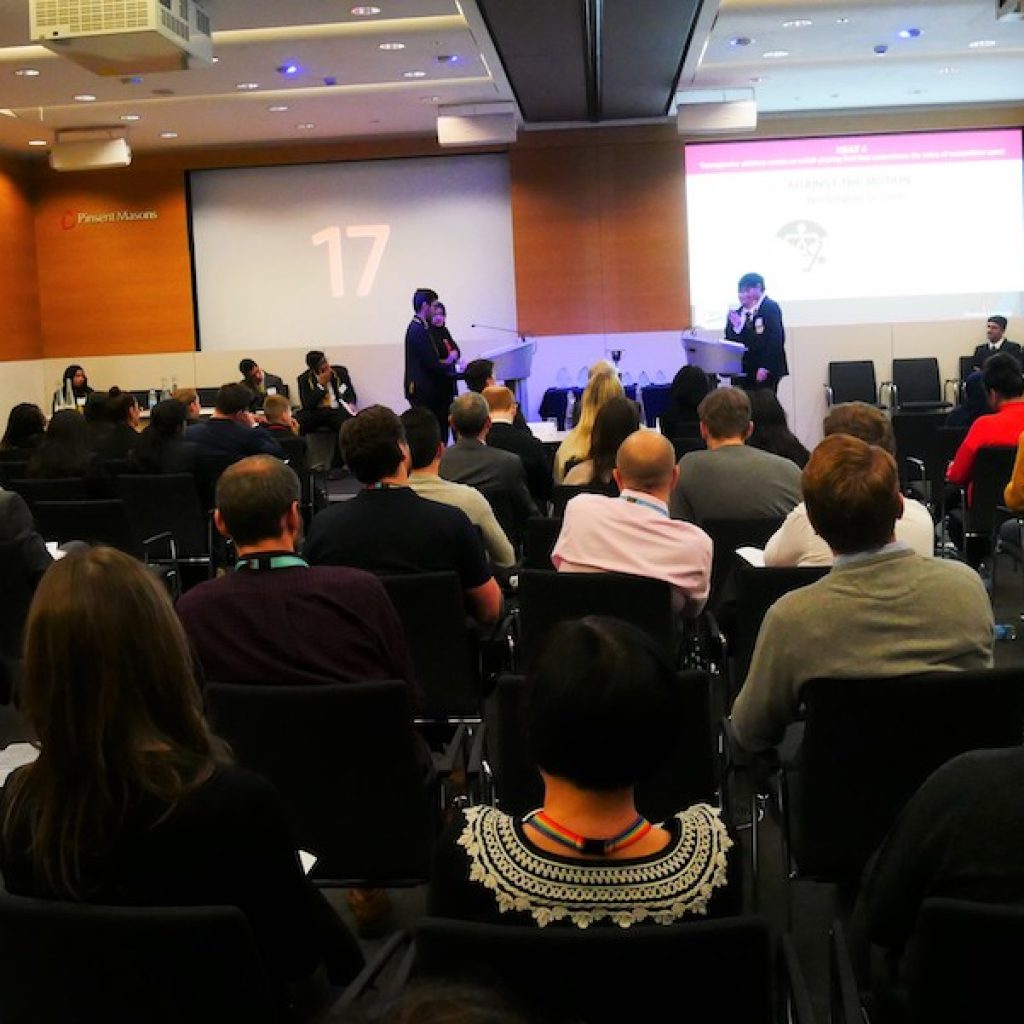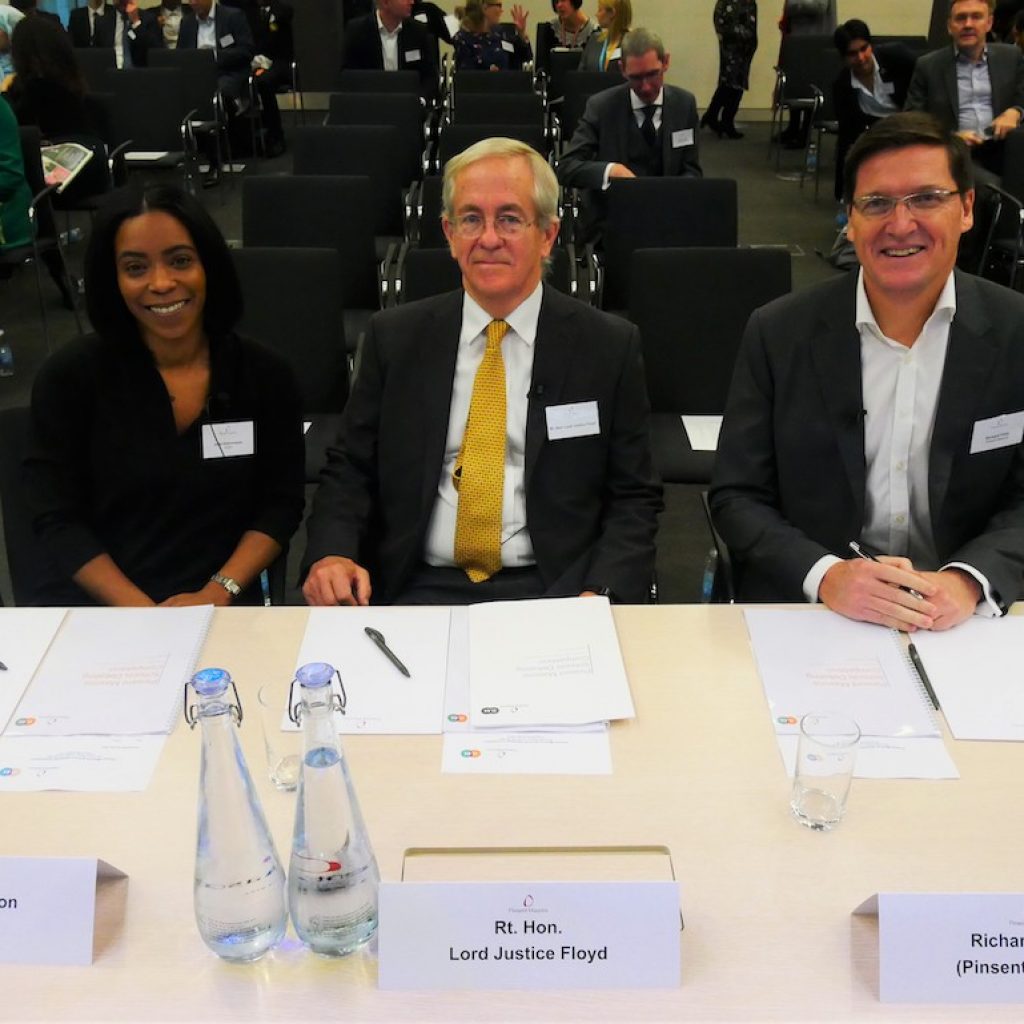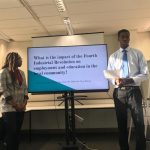Pinsent Masons Schools Debating Competition 2019
In 2019, international law firm Pinsent Masons joined up with ELBA to host another successful debating competition with eight schools from Newham, Waltham Forest and Redbridge. Year 10 students from Holy Family Catholic School, Eden Girls Schools, Valentines High School, Lister Community School, Norlington Community School, Rokeby School, Little Ilford School and Sarah Bonnell School were at the firm’s headquarters in London on Friday 6 December to spend the day debating several motions, including:
- “Generational labels do more harm than good.”
- “Stop and search powers have led to the police seeing young people more as objects of suspicion than potential victims to protect.”
- “Books should be subject to age-ratings the same as films.”
- “Transgender athletes create an unfair playing field that undermines the value of competitive sport.”
Each school had been matched with a volunteer team who provided support and coaching to the schools prior to the event. The volunteer teams comprised of business professionals from Veolia, HSBC, Lloyd’s, Kier, Zurich, Constain and ENGIE.
The judging panel was chaired by The Rt Hon Lord Justice Floyd, Pinsent Masons’ senior partner Richard Foley and ELBA’s own Managing Director, Julie Hutchinson. They sent previous champions of the competition Rokeby School through to the final against Little Ilford School.
Rokeby School and Little Ilford School tackled the final motion that “the fusion of technology with the human body for non-medical reasons should be banned.” Little Ilford made an interesting argument that fusing technology with the human body for non-medical reasons should be banned because it would increase inequality in human societies as only a select few may have the economic freedom to infuse their bodies with technology. Rokeby made a strong counterpoint that the fusion of technology with the human body for non-medical reasons should not be banned because the world is changing at a rapid pace due to technological innovation, and a fusion between technology and the human body may be necessary to help humans adapt to these changes. After serious deliberation, the judges announced Rokeby School as the winners of this year’s competition.
When asked about her experience of the day and what she learned from the competition, one student from Sarah Bonnell School said:
“Being involved in this debating competition taught me how to work with others in a group and solve problems creatively. It also helped me build my confidence to speak in front of others, as public speaking was something I struggled with prior to the coaching we received. The whole competition was an invaluable experience and I would encourage others to take part if the opportunity presented itself.”
We look forward to meeting and supporting a new cohort of talented debaters in 2020.
Words by Ullash Das





